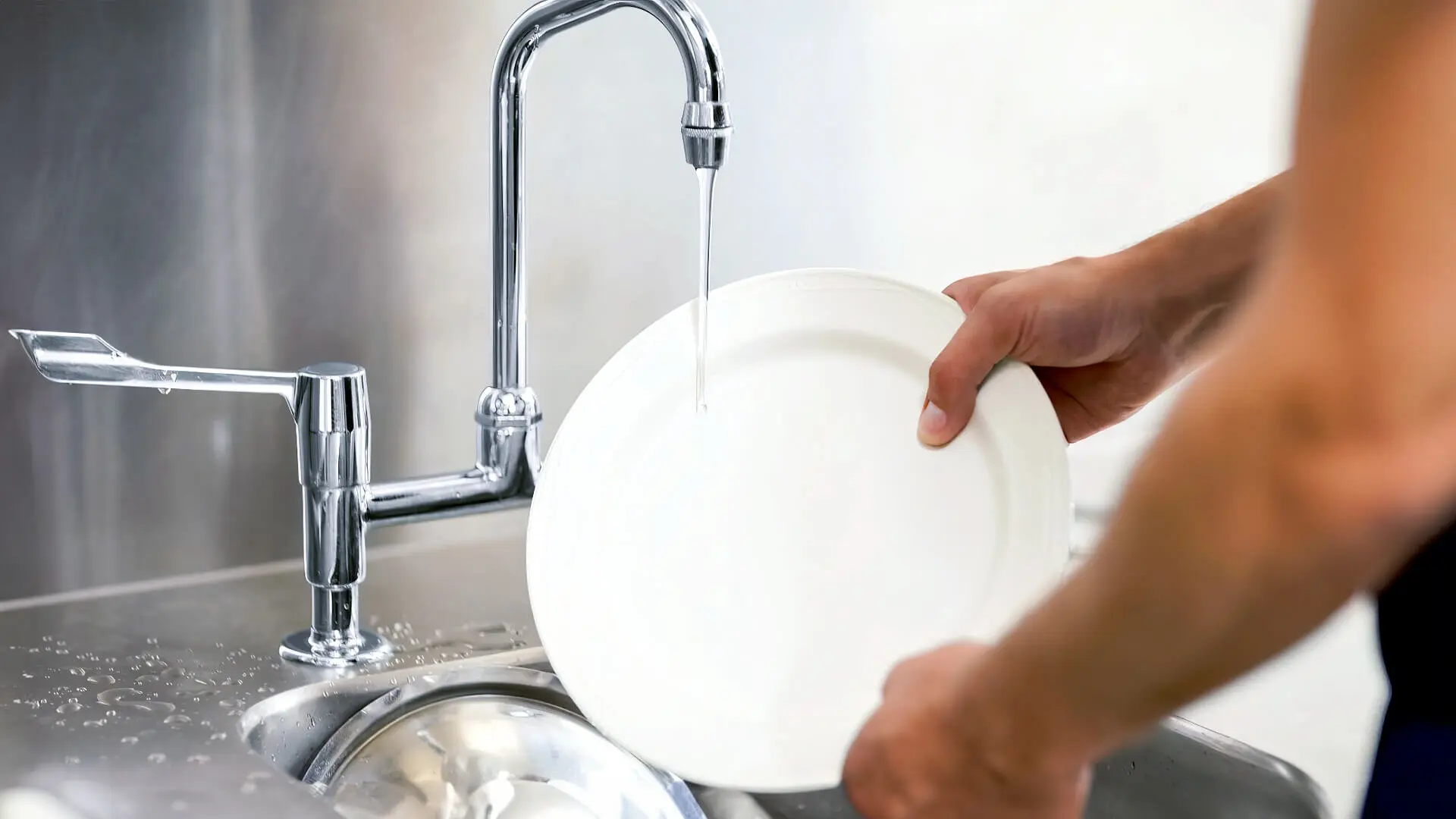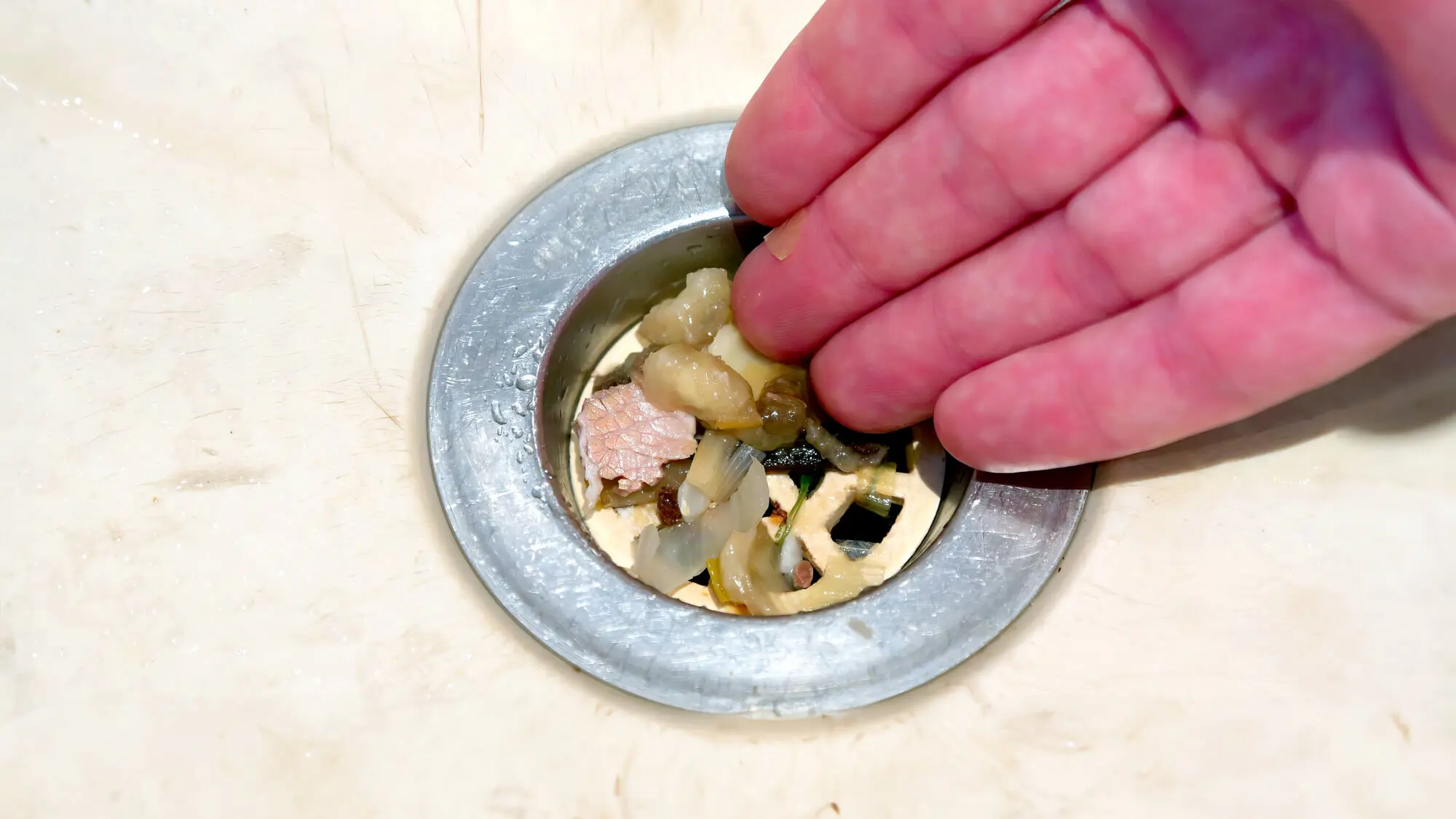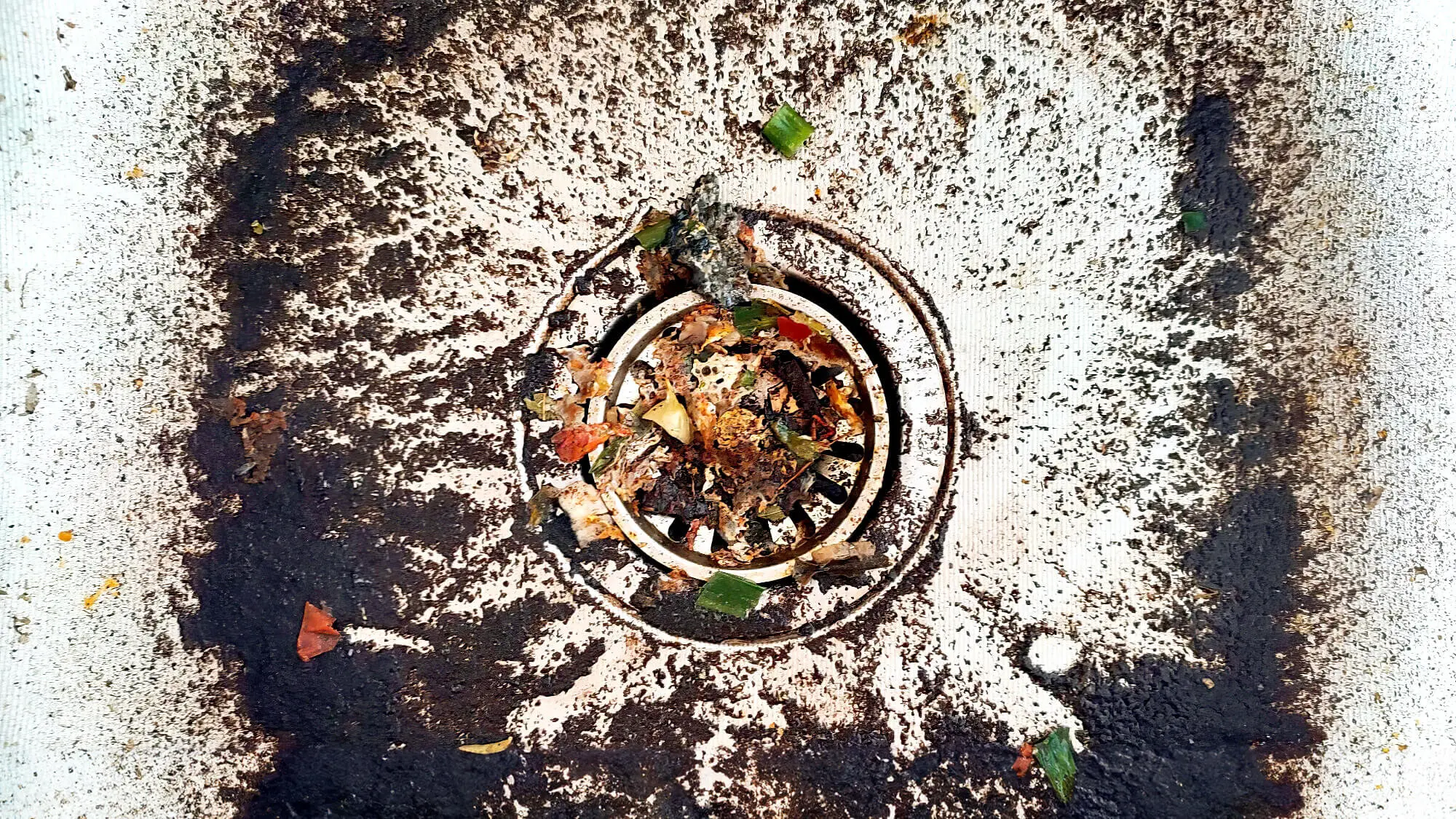You turn on the tap, and instead of a smooth flow, you hear a sputter and gurgle from your clogged kitchen sink. It’s not just an inconvenience; it could be a health risk.
Standing water breeds bacteria, and the stench can quickly permeate your kitchen. But before you call the plumber, take a deep breath. Clogged drains are a common problem, and they can often be prevented with a bit of know-how.

In this blog, we’ll explore the various reasons why kitchen sinks become blocked and how to prevent these issues from happening in the first place.
Following these simple tips lets you keep your drain flowing freely and your kitchen smelling fresh.
The Usual Culprits: What’s Blocking Your Kitchen Sink?
A blocked kitchen sink is a real hassle. Knowing what typically causes these clogs can help you prevent them in the future. Let’s take a look at some usual suspects lurking in your kitchen.
Fats, Oils, and Grease (FOG)
These greasy residues solidify in cool pipes, forming stubborn clogs. Even small amounts of cooking oil poured down the drain contribute to the build-up over time. Resist the urge to pour boiling water down the drain to melt grease.
It can cause burns, and extremely hot water can warp pipes. Instead, scrape any food scraps and greasy residue off cookware before washing.

Food Scraps and Coffee Grounds
While garbage disposals might seem like an invitation to dump food scraps down the drain, it’s best to avoid it.
Food scraps, especially coffee grounds, can accumulate in pipes and form clogs. Make a habit of scraping leftover food into the bin before rinsing dishes.

Starchy Foods
Be wary of starchy culprits like rice, pasta, and potato peels. These foods expand in water, creating a glue-like substance that can contribute to blockages.
Always scrape leftover starches into the bin before rinsing dishes to prevent this sticky mess.
Eggshells and Other Hard Debris
Eggshells, bones, and other hard materials are no match for your garbage disposal and can damage the blades. Additionally, they can easily clog pipes. These items belong in the bin, not down the drain.
Soap Scum and Mineral Build-up
Soap scum, especially in areas with hard water, can accumulate in pipes and contribute to blockages. Over time, mineral deposits from hard water can also narrow pipes. If you have hard water, consider solutions like a water softener, but remember to consult a professional for proper installation and maintenance.
Taking Action: Clearing a Blocked Kitchen Sink
A clogged kitchen sink can be a real nuisance. Luckily, there are several ways to tackle it before calling a plumber.
The P Plunger
Your go-to tool is a trusty sink plunger. Make sure it’s the right size for sinks, not toilets. A firm seal is crucial! Place it over the drain and push down firmly to create suction. With some vigorous plunging, the clog should budge.
Baking Soda and Vinegar
For minor clogs, a natural solution is baking soda and vinegar. Pour a cup of baking soda down the drain, followed by a cup of white vinegar. The vinegar will fizz as it reacts with the baking soda, helping to break down the clog.
Let it bubble for 15 minutes before flushing with hot water.
Boiling Water (Use with Caution)
Boiling water can be a quick remedy, but use it with caution. It can damage some pipes, especially those made of plastic. If you’ve tried the plunger and baking soda/vinegar without success, carefully pour a pot of boiling water down the drain.
When to Call a Plumber
If the blockage won’t clear or you suspect something more serious like tree roots, it’s time to call a licensed plumber. They’ve got the right tools and expertise to tackle tough clogs and keep your pipes in good shape.
Prevention is Key: Keeping Your Kitchen Sink Running Smoothly

Develop good habits
- Scrape off food scraps and greasy residue from your dishes before washing them. This will significantly reduce the amount of material that can clog your drain.
- Use a sink strainer to catch any remaining food particles that might slip through. Empty the strainer regularly to prevent buildup.
Regular Cleaning
- Regularly clean your drain with a drain cleaning product to remove built-up grease and soap scum. This will help prevent clogs and keep your drains running smoothly.
- Avoid using harsh chemical drain cleaners, which can damage your pipes. Opt for natural cleaning methods whenever possible.
Garbage Disposal Maintenance
- If you have a garbage disposal, grind ice cubes occasionally to sharpen the blades. This will help it function more effectively.
- Always follow the manufacturer’s instructions for proper use and care of your garbage disposal. This will ensure it operates safely and efficiently.
Say Goodbye to Sink Blockages with Big Blue Plumbing
With some simple preventative steps, you can keep your kitchen sink draining smoothly. Establish a regular cleaning routine, use a filter to catch scraps, and wipe down greasy residue to noticeably cut down on blockages.
Never pour fats, oils, or grease down the drain, as they can solidify and cause major clogs.
For stubborn clogs that require professional help, Big Blue Plumbing is here for you!
Our skilled plumbers can quickly diagnose the problem and get your kitchen sink back in working order. Don’t wait any longer — speak with our Big Blue Plumbing experts today and say goodbye to clogged drains!



